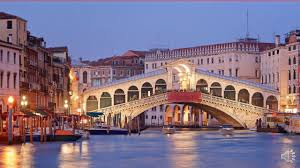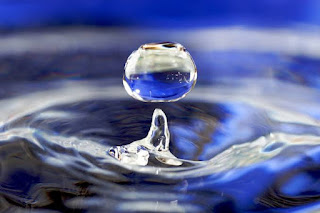Back To Basics : It's The Little Things We Do About Climate Action
Climate change often seems to be a huge problem, a
global problem, something that cannot be solved by the ordinary person. ‘But
what can I do about such a huge problem, a global problem?’, you ask. It is
true, climate change is a global problem, affecting the planet everywhere
albeit in different ways.
It is also true that most emissions are from big
industries and some things like transport emissions seems unavoidable since we
all use a vehicle at some point or the other. This is changing however, with
the rise of electric cars powered by renewable energy.
But worry not, there are things that every person,
as an individual can do to reduce their carbon footprint[1].
The goal in climate action is to shift to a low carbon pathway. A low carbon
pathway is a way of life that promotes the release of zero or very little
amounts of greenhouse gas emissions.
It is a collective effort, where the whole of
society, industries, businesses, civil society, private sector, governments,
you and me are involved. Basically everyone. But change has to start somewhere.
And that’s me and you. If two, twenty, two hundred, two thousand, two hundred
thousand, two million, two billion people somewhere make the decision to go
green, the total effect will be tonnes and tonnes of emissions avoided.
Here are some of the tidbits that you and I can use
in our daily lives to save self and planet:
Energy
Switch
off the lights when you are not using them. Don’t
switch on multiple lights in the same room/area. Get one source of central
lighting
 |
| turn off the lights - image credit of guernseydonkey.com |
Why? For the most part, electricity is generated
from thermal power plants which use coal or diesel or natural gas. Coal, oil
and natural gas are fossil fuels. So the less you use it the better.
Use natural
lighting whenever possible. Building orientation, wide windows, clever
placement of mirrors all could amplify natural lighting in your home or office.
Also, consider using alternative fuels such biogas for cooking fuel, instead of
electricity or charcoal to prepare your meals. Fireless cookers are also
another clever and ingenious way of cooking.
Get a solar
panel installed in your home or office building. Technology and qualified
expertise for this is becoming more available and cheaper. It’s the way to go.
There’s another plus to this – you save on costs.
Industry
Reduce your usage of plastic. Plastic has a huge carbon footprint and is actually
dangerous to the environment and wildlife. Plastic is derived from oil and a
lot of emissions are released in the manufacturing process. Plastic also takes
a very long time to fully decompose and is in essence non-biodegradable[2]
and thus poses a danger to life – inclusive of marine life. Have a look at the
CleanSeas project
Use other alternative packaging which is
eco-friendly.
Paper
As much as possible, avoid using paper. Use your phone to take notes or reminders, write
online, use a computer instead of sticky notes or notepads. Reduce your usage
of paper as much as possible. Read a book or newspaper online instead of buying
a hard copy.
Paper is derived from tree pulp which means that a
tree was cut down to make that book you are reading or using. Trees absorb
carbon dioxide from the atmosphere to make food during photosynthesis[3]
and in this way, help mitigate against climate change.
At the very least, use recycled paper for
unavoidable uses like some types of packaging. In this way, we create employment
and still are eco-friendly.
Another habit that unfortunately helps us contribute
to climate change is excessive buying of clothes. How? The
culture of consumerism dictates that one buys more items of clothing than he/she needs. Being fashionable means
you can’t be caught dead in last season’s style. You have to have the latest.
Unfortunately, in the process of manufacturing all these clothes to feed this
wasteful habit, a lot of emissions are released both from the process of
manufacturing as well as the energy used.
It is also completely unnecessary to have so many
clothes you are not going to wear again, so why not invest in a few timeless pièces.
Another benefit is that it is much easier on and
healthier for your purse.
Agriculture
Agriculture is the third biggest emitter of
greenhouse gases per sector.
If you are a farmer, practice climate smart agriculture, which you can read about here.
Agriculture contributes to climate change also by
consumption of meat. Meat is from
livestock and cattle upon a thousand hills release methane which is a
greenhouse gas, and one of the 7 major greenhouse gases. Greenhouse gases are responsible for climate change.
Demand for meat dictates the supply.
Food
waste is also a big concern. According to the UN, if food
waste was a country, it would be the third biggest emitter of greenhouse gases.
How? People basically waste food by
putting more food than they can consume on their plate, engaging in food fights
and being worried about aesthetic concerns – that is, shunning misshapen food.
All this food ends up in landfills where
decomposition releases methane gas.
Transport
Transport is a basic need, and the faster, easier
and cheaper it is, the better. However, airplanes and most cars on the roads
use oil in one form or another.
Gasoline, jet fuel, petrol and diesel are all derived from crude oil and
their combustion adds to the amount of greenhouse gases in the air.
What to do? Well, if you can, invest in an electric car. Powered by electricity
from renewable energy sources such as solar and wind, these vehicles are the
future, with companies such as Tesla leading the way.
Alternatively, share your car with your neighbor if
you are heading in the same direction. Co-voiturage as the French call it,
is effective because we reduce the number of cars on the roads and so lower the
amount of emissions. Another plus to it? It makes for good neighbors, and a
cordial friendly relationship which is actually healthy for all of us.
Also, you can get a bicycle or better still, walk.
Both are good exercise for a population with an increasingly sedentary
lifestyle. Exercise will help you avoid many lifestyle diseases when coupled
with good dietary habits. Walking or cycling also is good for the soul, helping
you appreciate the simple things of life, like the fresh air and the sun on
your skin. Walking strengthens the bones and when done on a sunny day has the
bonus of a good dose of Vitamin D.
To be an eco-citoyen,
always practice the three Rs – Reduce, Reuse, Recycle. It makes for a healthier
planet, and also you and me.
Well, there we have it ladies and gentlemen, these
are the simple, easy things you and i can do to fight against climate change and save
ourselves too.
What are your tips? Feel free to add by commenting
below, share too!
[1]
The amount of carbon dioxide or other greenhouse equivalent that an activity or
person or entity emits.
[2] To
mean, a substance cannot be broken down to its very basic natural elements by
natural processes.
[3]
Process by which green plants use carbon dioxide in the presence of sunlight to
manufacture food.



Comments
Post a Comment